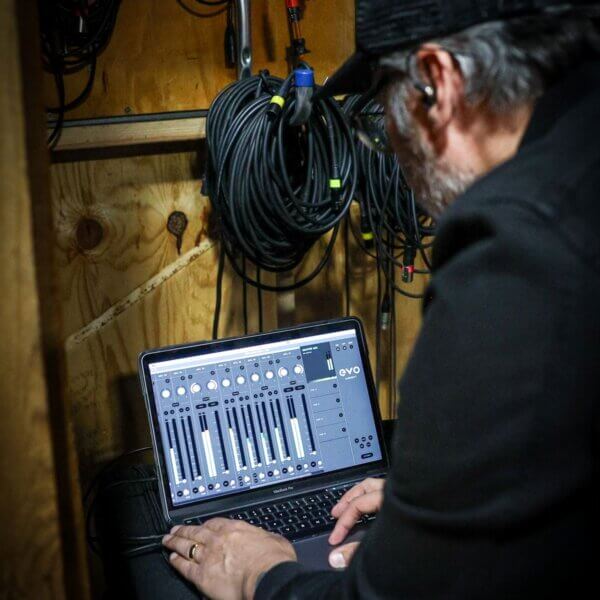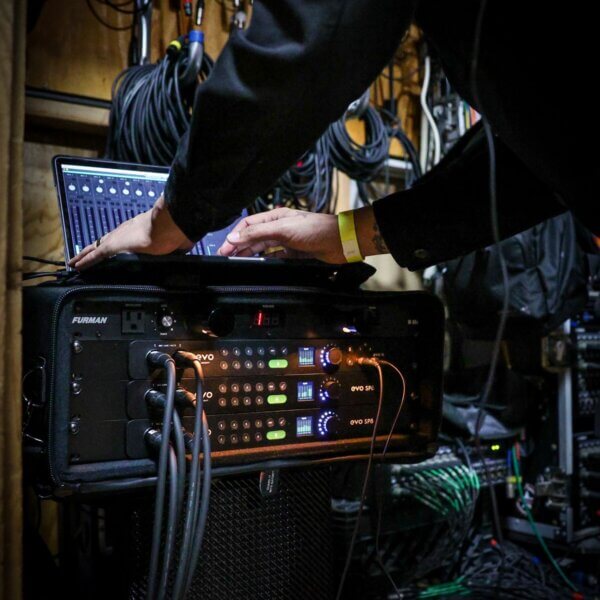When pro mix engineer, guitarist and producer Mike Butler (Fleetwood Mac, The Rolling Stones, etc) was given the opportunity to record The White Buffalo live on location last month, he was keen to try out his EVO Expanded System for the job.
He originally stumbled across the EVO Expanded System last year, when he was upgrading his home recording setup. At the time, he was testing out his theory: “you don’t need expensive gear or specially built facilities to make a great record” and got some surprising results. Read more about that here.
We’ll hand over to Mike once again to tell us more…
I’m usually quite late to the party when it comes to popular movies and television. Several years after a show is long over, I’ll dive into the whole series and start exclaiming to everyone how great this “new” show I’ve been watching is. So, in typical fashion, somewhere around 2018, I started watching Sons of Anarchy, a show that ran 7 seasons and ended four years earlier. I think it’s a great show, but one of the things that made it so great to me was the music used. The creators had a knack for placing the perfect music into scenes that drew you deeper into the action on screen. One such moment in particular stood out and left a big impression on me. At the end of Season 4, a huge, powerful baritone voice filled the air, singing a dark and haunting version of The Animals classic, The House of The Rising Sun. This is the moment I first heard The White Buffalo and have been a fan ever since.
Fast forward to the end of 2023 and I find myself on the phone with Jake Smith, the man and powerhouse voice behind The White Buffalo, discussing the possibility of working with him on a double live album, recorded over two nights in March 2024 at the world-famous Belly Up in Solana Beach, CA. Needless to say, I was absolutely thrilled!
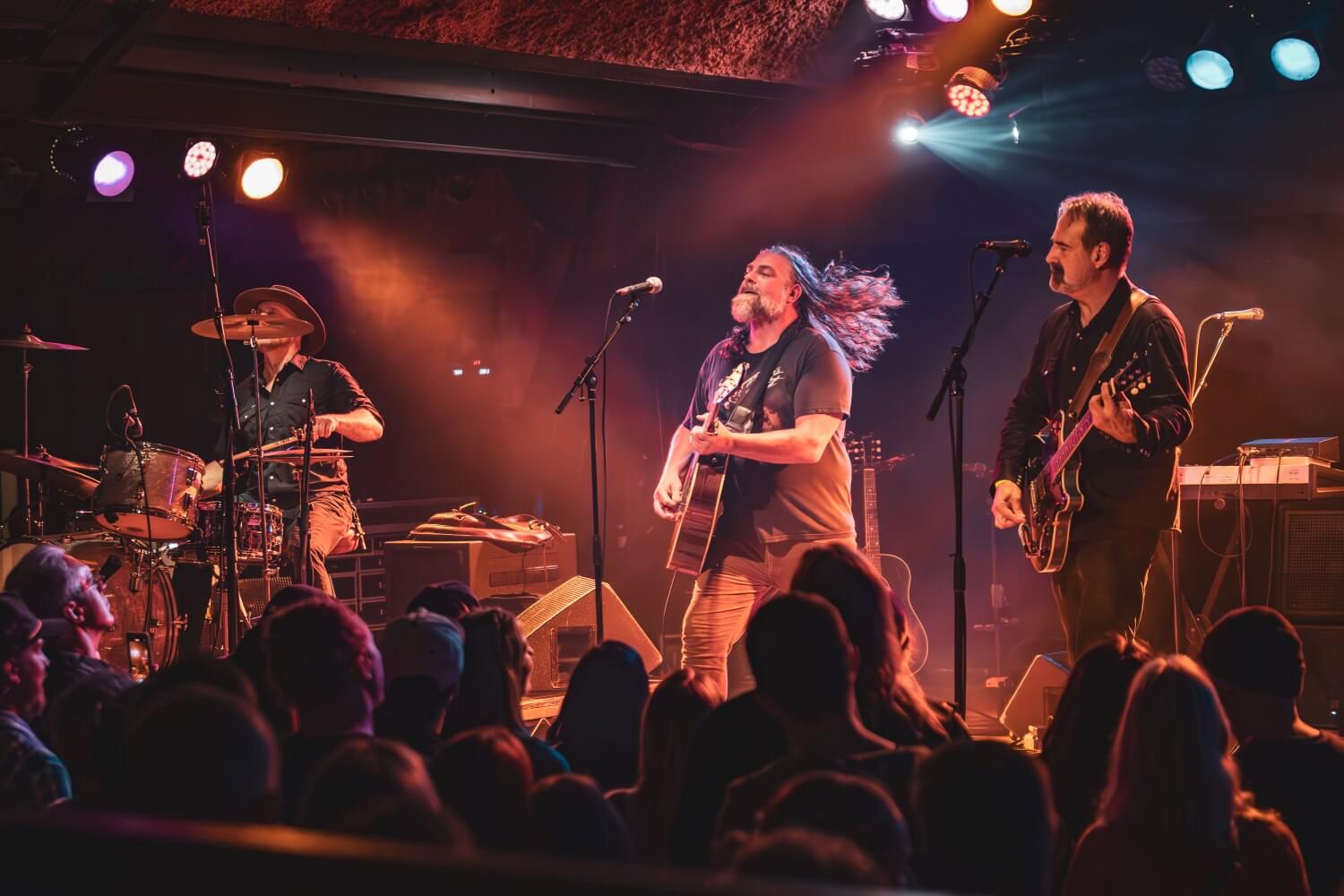
The Prep
I had done some live recording in the past, and certainly mixed a lot of live shows, but this would be the first time I had worked on a live album of this nature entirely from start to finish, recording the shows, editing, mixing and sequencing the entire project.
The first matter of business was to see the band live and get a detailed look at not only the technical details of their stage show but familiarize myself with the songs and flow of the whole show as an audience member. They are well known as being an amazing live band who put on a supercharged, high-energy performance, and I knew that the biggest challenge was going to be capturing that excitement and translating it to an album. Lightning in a bottle as they say.
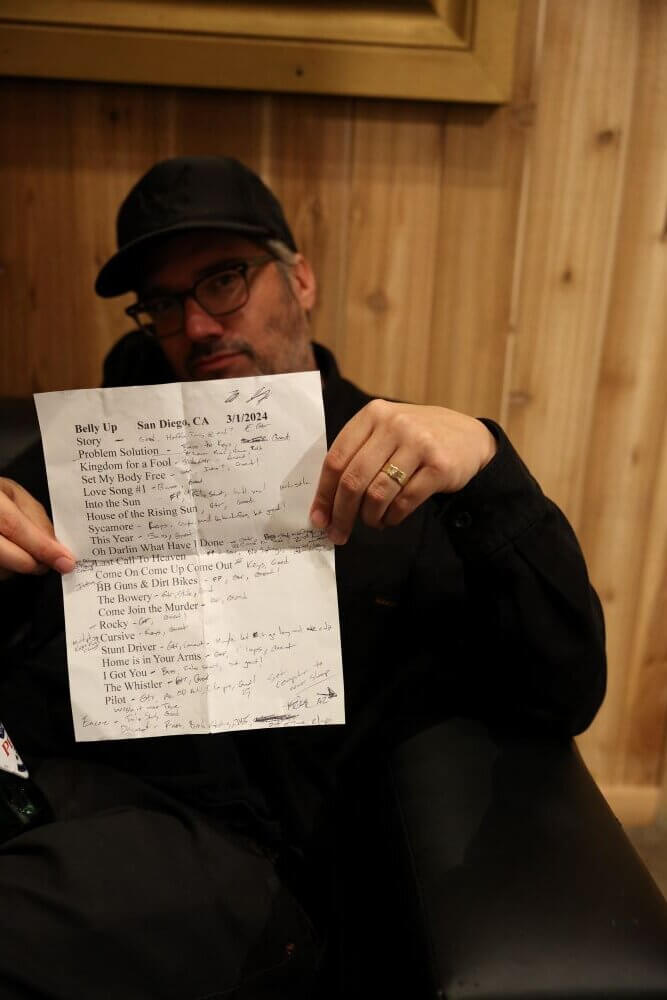
Their next scheduled show was in January at The Observatory in Santa Ana, CA, so I made arrangements to be there to meet with them and discuss the recording and all the details. They are all incredibly gracious and immediately made me feel at home and like a part of the team. I walked the stage with them before the doors opened and got a full input list and stage plot.
Being a trio, the setup was relatively straight-forward. Multi-instrumentalist, Christopher Hoffee’s setup was slightly complex because he hops from Bass, to Keyboard, to Electric Guitar throughout the night, along with providing backing vocals from two different areas of the stage, depending on what instrument he’s playing. He also developed a system when playing guitar, that allows him to filter some of the low end through an octaver to his bass amp to give the sense of heft and bottom end when he is playing just guitar. It’s a huge, fantastic sound! It was a few extra inputs, but all very clear and well organized. Otherwise, the setup was standard stuff. A full drum kit (Setup at the front of the stage), and Jake’s acoustic guitar and lead vocal.
The White Buffalo – “a force of nature”
As a side note, if you ever get a chance to see this band live, do it. It’s incredible how much sound comes out of just three people. Matt ‘The Machine’ Lynott is one of the most dynamic and powerful drummers I’ve ever seen, and it becomes instantly clear why they stick him out front where the audience can experience his performances up close. Jake is larger than life in his commanding stage presence and his massive voice could hold your attention for hours just reading the phone book. Mixed with the sonic landscape Hoffee builds around them, they are a force of nature.
The Kit
The meeting with the band and show was fantastic, and I was armed with all the information I needed to fully understand the task at hand. Next was to put together a system that would be robust and powerful enough to handle recording the shows. Based on my past experience with Audient gear, and particularly the EVO system, it was an obvious choice for this project. So, I put together a 24 channel system consisting of an EVO 16 interface and two SP8 mic pre units, along with my 2020 13” MacBook Pro (M1) running Pro Tools. I had used a 16 channel version of this setup to record a full album project in my house last year with great results, so expanding the system to 24 channels for this seemed to be a no-brainer.
“I had used a 16 channel version of this setup to record a full album project in my house last year with great results”
Once the system was put together, and with the shows for the album approaching, I felt the need to field test everything, just to make sure there were no surprises for the big event. So, I headed out to a show they were doing the week before at Pappy and Harriet’s in Pioneertown, an incredible bar, restaurant, and live music venue at the edge of an old western movie set in the heart of the High Desert, near Joshua Tree National Park.
I packed up my EVO rig, along with a few extra microphones, stands and cables for capturing audience, and a 32 channel analog XLR splitter to be able to split the signal from the microphones right from the stage before it went to the front of house or monitors for the venue. That way I got as pure of a signal as I could, and the house could make any adjustments they needed without affecting my recording in any way.
The Trial Run
The layout at Pappy’s is quite small, and the music venue shares the space with the main dining room, which made things a bit challenging by the fact that they serve dinner right up until 7pm when they clear the room, remove the tables and chairs, and open the doors back up for the show 30 minutes later. It can make for a rather hurried and awkward setup and soundcheck, working around poor, unsuspecting patrons just trying to eat their brisket and mac-n-cheese in peace. But they do get a free show of a couple of soundcheck songs for their troubles, so I suppose it’s a fair trade.
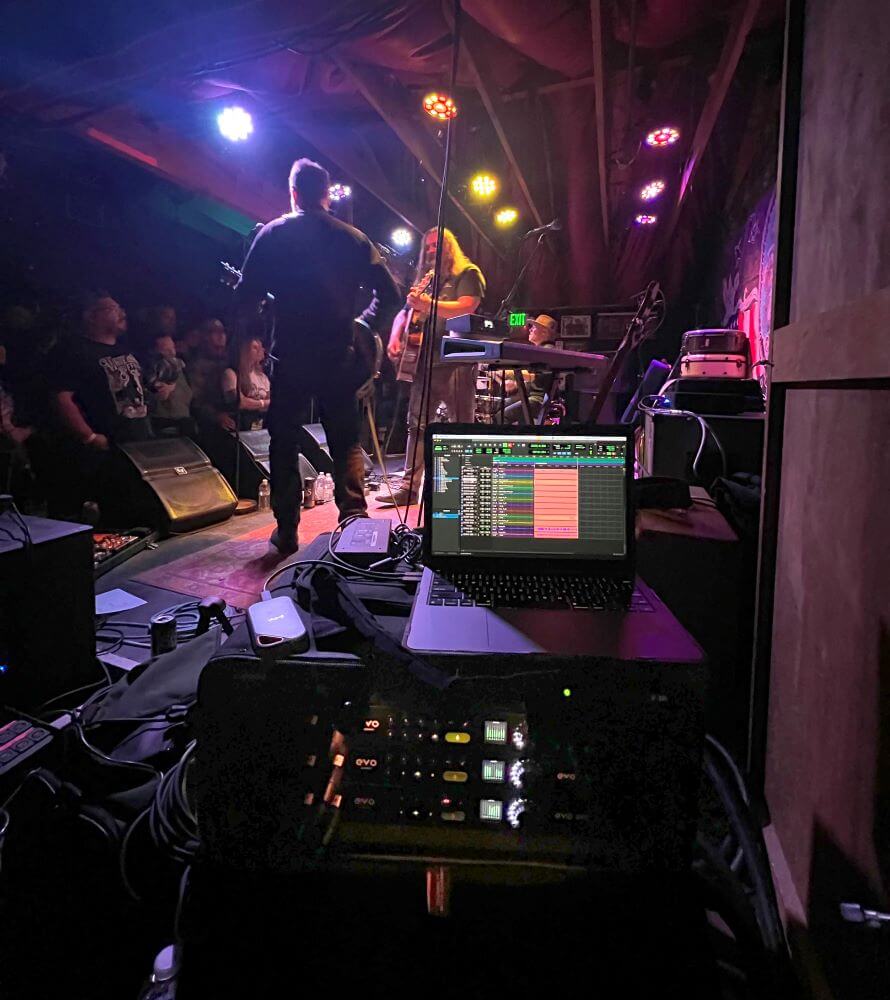
The band arrived around 5pm and got to work setting up on the small stage. The house engineer and staff were amazing and really went out of their way to accommodate me with the added element of recording the show. Pappy’s has a main stage box at the side of the stage where I was able to patch in with the splitter, and because it is passive, phantom power for any mics that required it came from the front of house, so I didn’t need to supply it.
One of the biggest challenges in these types of live recording situations is that you really can’t hear much of anything that you are recording. I was set up right at the side of the stage, next to the guitar/bass/keyboard rig, and given the small size of the room, there was no way I was going to be able to hear anything critically, even the most isolating of headphones. I even tried putting my closed back Audio-Technica M50x’s over my Shure In-Ear monitors, but the best I could hope for is that I could hear enough if something was drastically wrong, i.e. a loud buzz or a single-ended, weak signal. Luckily, everything seemed to be working well and I got a clean signal from all sources. I knew I really wasn’t going to be able to tell what things sounded like until I could listen to it all later, so the goal was just to make sure the mics were placed properly, and I was getting clean, healthy signals.
“everything seemed to be working well and I got a clean signal from all sources”
I added a few mics to the equation to capture the audience. Two Audio-Technica AT897’s at the front of the stage pointing out, and one AT2021 back by the front of house board using a 100 foot mic cable ran along the beams of the building. Again, this was just a trial run, so I didn’t feel any pressure to get it all perfect, just experiment and see what works and what to look out for later.
Come showtime, I had one main concern, that the system stay in record without any hiccups. Asking a computer to record 24 channels of 24bit/48k audio continuously for over two hours to an external hard drive, is no small task. A lot can go wrong, but I’m thrilled to report that the entire system worked flawlessly. Not a single hiccup. It just churned away, calculating ones and zeros through the night and leaving me feeling confident that all would be good come time to record the actual album.
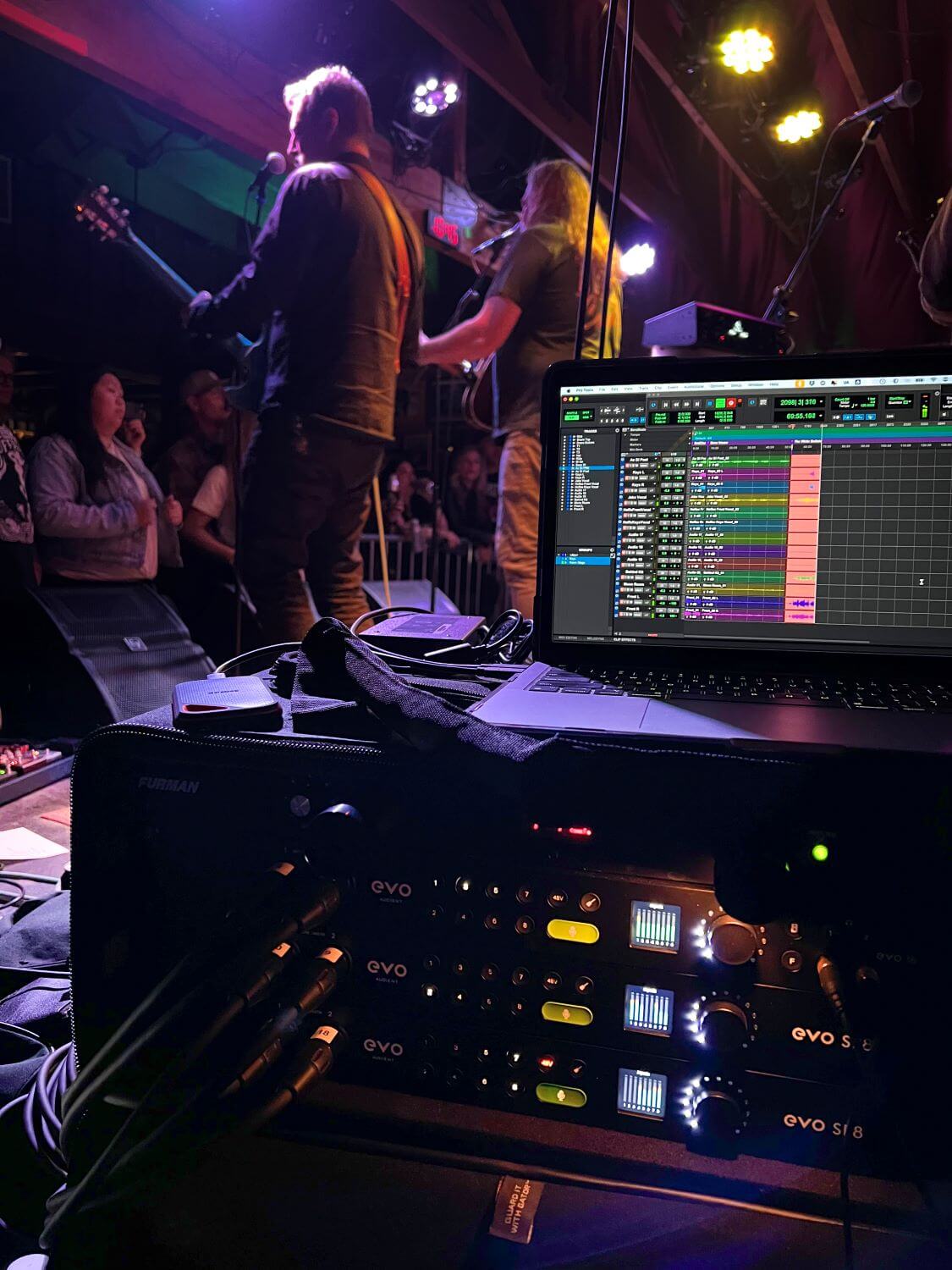
It was a long day and night, and by the time I packed up everything, loaded into my car, and got back to the hotel at about 1am, I was exhausted. But, I couldn’t help myself, I had to hear what these tracks sounded like. So, I set up my laptop and opened up the session to have a listen. Eureka! Everything sounded clean and clear and full. It had all worked great and sounded fantastic. I was able to rest my head easy that night knowing that the system worked exactly as it should and I was going to be fully prepared for the actual album recording the following week.
Showtime
The day arrived for the first show and recording, and I arrived at the venue around 2pm. The staff at Belly Up were incredibly helpful and accommodating to me and the audio crew are true professionals. I can’t stress enough how much easier and smoother that made everything go. They have a fantastic sound system there, and already have a built-in audio split on the side of their stage, so bringing in one myself wasn’t necessary. They even have audience mics in place in house already, so all I had to do was set up my rig next to the Monitor board and patch in the appropriate inputs from the split.
“The ability to save all these settings using the EVO software meant that I knew everything would be consistent the following night”
The band did a full soundcheck, running through various songs and I set all my mic levels from the EVO’s. The ability to save all these settings using the EVO software meant that I knew everything would be consistent the following night. All I had to do was open the project and all my levels were exactly the same.
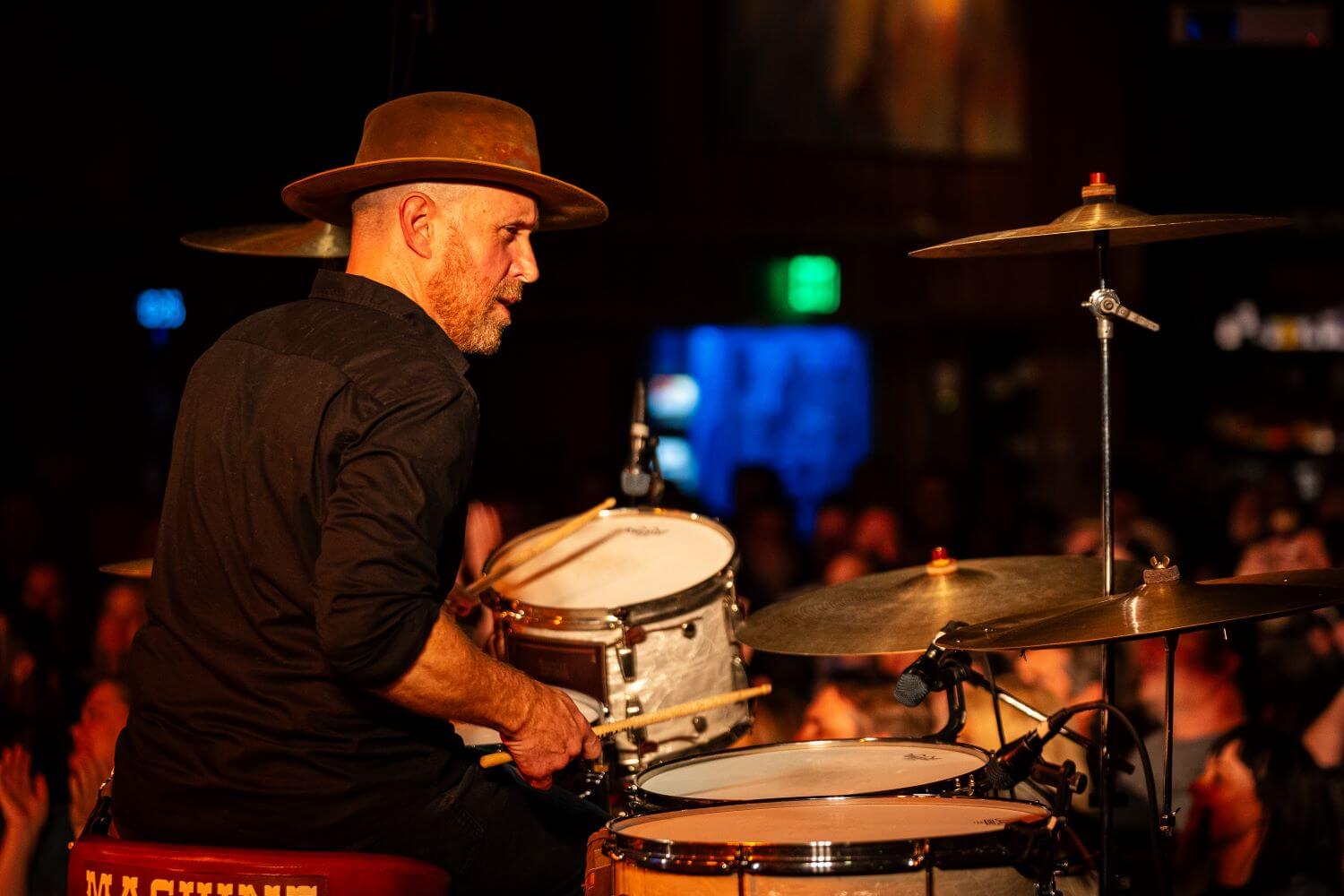
There was an opening band for both nights, but luckily the house system had enough inputs so none of the mics or routing had to be disturbed from soundcheck and all that was needed before The White Buffalo took the stage was a quick line check and a quick look to be sure none of the mics had been moved. All was well and it was time for the show.
“once again, the Audient EVO Expanded System delivered flawlessly”
The band was spectacular, playing 25 songs spanning their seven albums and twenty-year history with the sold-out Belly Up crowd full of energy and enthusiasm for over two hours straight. It was a great show, and once again, the Audient EVO Expanded System delivered flawlessly. I took the files home that night and was delighted with the way everything sounded. Just like the test run, the tracks sounded clean and robust, and with the ambience of the bigger room and stage, I was fully confident that we were successfully capturing the band the way we had intended. If this was the only night we had, I would have been perfectly satisfied, but we still had another night to go.
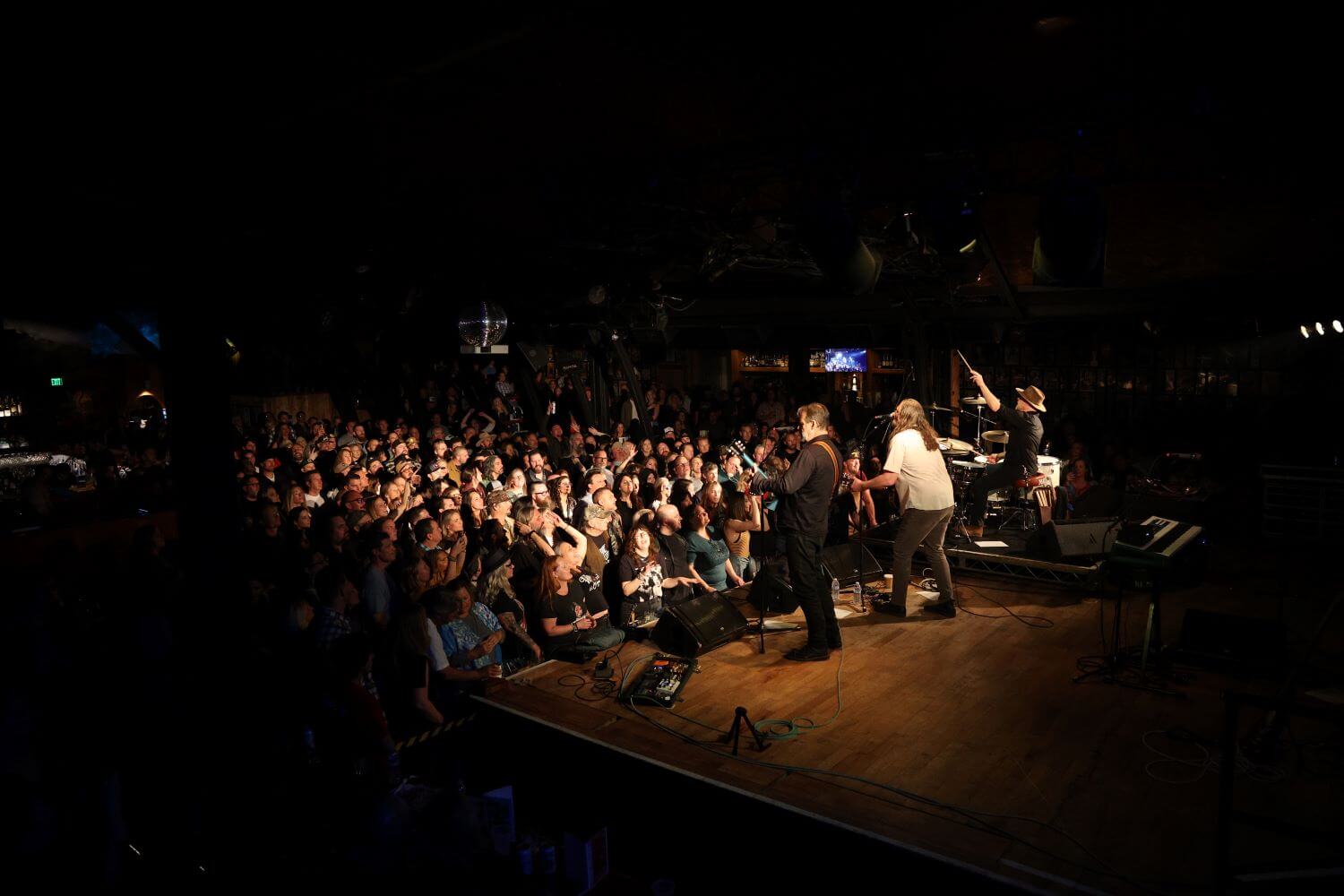
I can’t tell you what a luxury it was to be able to walk into the venue the next night and have everything set up exactly as we had left it. A simple line check and we were ready to go. Because the band had such a solid night before, and the recording went so well, everyone seemed a little more relaxed. Once again, the band was amazing, and really let loose and had fun, and the crowd was right there with them. Again, the system worked exactly as it should without issue and another 25 song performances were captured.
After The Dust Settled
As I write this, we are in the midst of turning nearly five hours and 50 performances into a cohesive, 20 song live album. In the end, we recorded 32 different songs, 18 of which they did both nights, and 14 which were only performed once on either of the nights. It’s no easy task, as the performances were great on both nights and tough decisions need to be made about what songs make the cut, potentially leaving some great ones behind. However, it is more than likely that most of these will see a release of some sort in time, even if just digitally. There are just too many good ones, which is a wonderful problem to have.
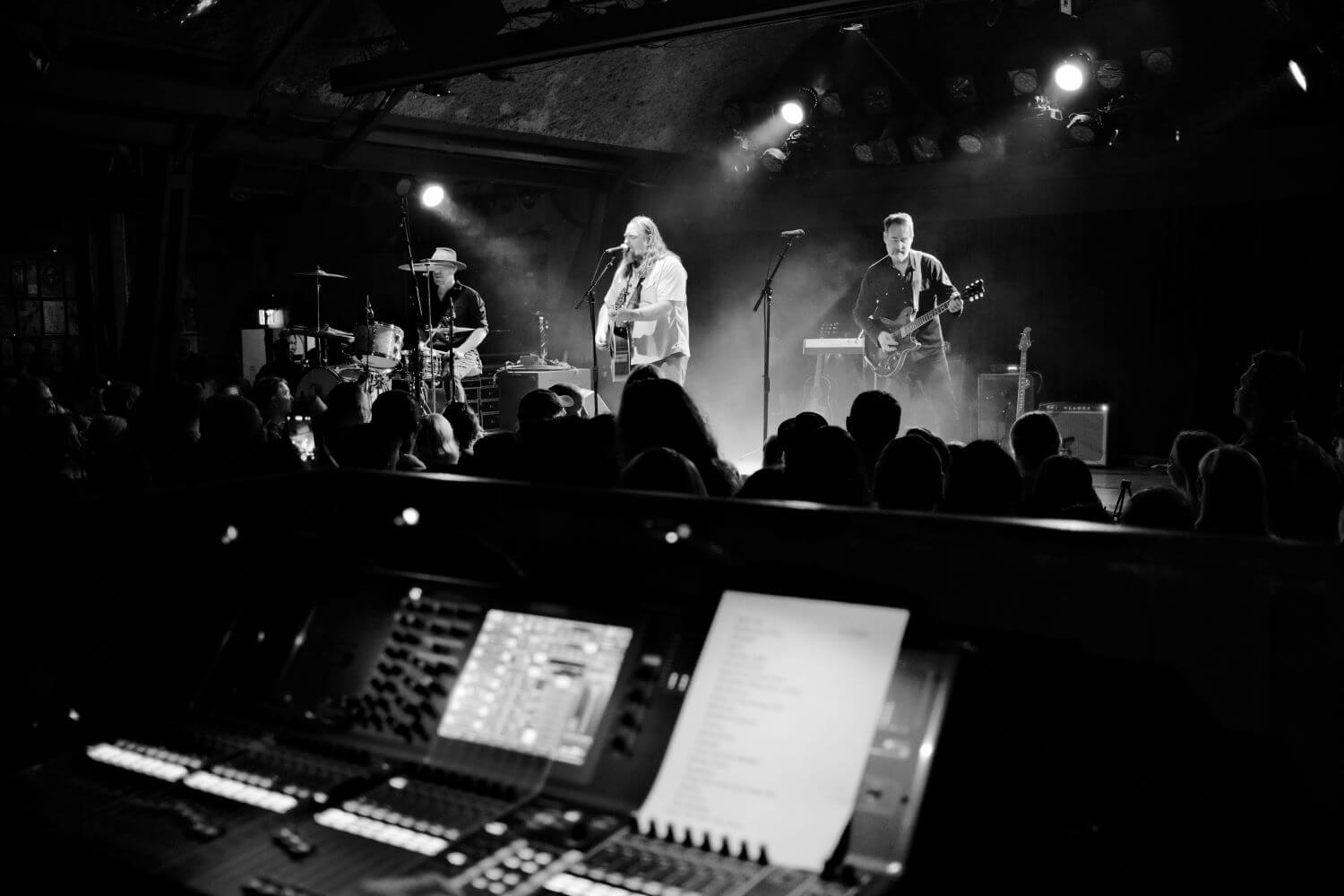
There will be a few edits, parts from different nights that felt better than the other for whatever reason, or some particular crowd interaction that was great, but because of the consistency in the setup and the recallability of the mic pre settings from the EVO software, both nights are interchangeable as far as sound and makes editing a breeze. I’m really looking forward to getting to the mixing stage in the coming weeks because I know I’ll have no issue with the sound quality of the tracks.
EVO Expanded System: “an intuitive, easy to use, great sounding and reliable system that is equally at home in the studio and on location”
In the end, the EVO Expanded System worked exactly as I hoped it would. It is an intuitive, easy to use, great sounding and reliable system that is equally at home in the studio and on location, and the fact that the system is so affordable blows me away. I can’t think of any other system at this price point that would even come close to the quality. There are already plans in the works for more location recordings with other artists and the Audient EVO Expanded System will be with me every step of the way.
Audient loves a happy ending. If you want to read more of Mike’s studio diaries, click through to his Substack blog which documents the highs and lows of his journey to date.
